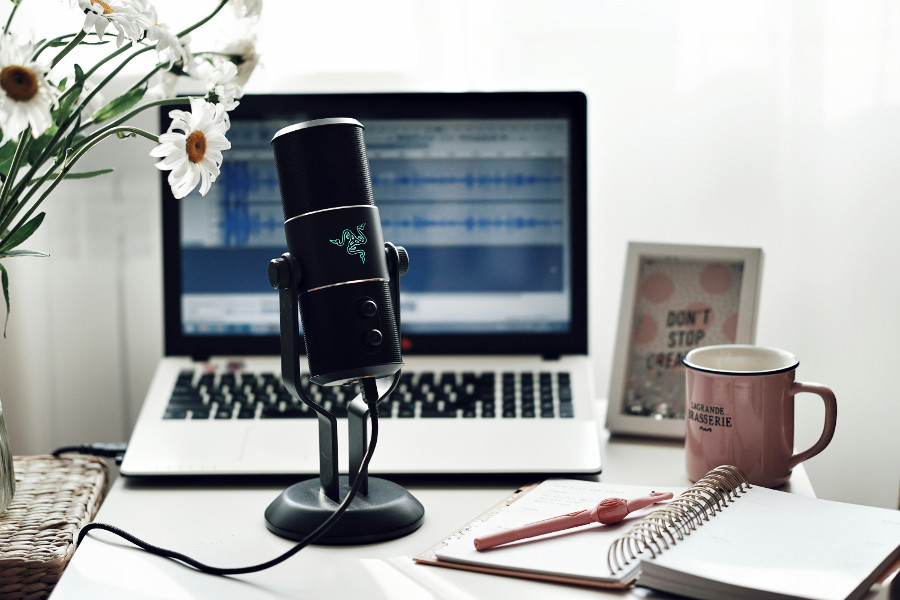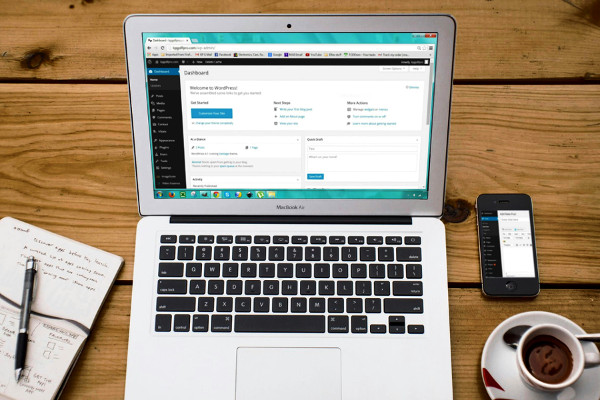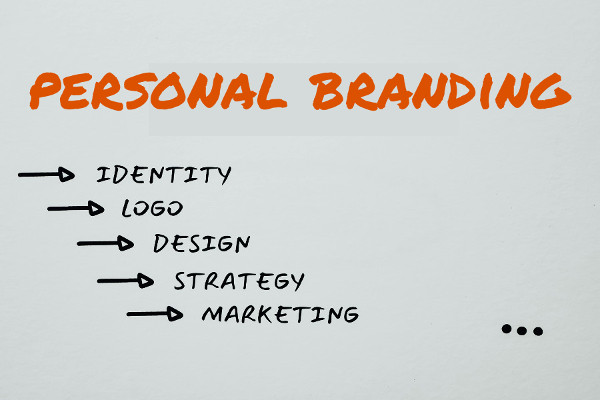How to Start a Podcast for Professional Success: A Step-by-Step Guide
Starting a podcast is more than just hitting record on a microphone. It’s about carving out a space in your professional world where you can share your expertise, build authority, and connect with like-minded individuals. Whether you're looking to elevate your career, network with industry leaders, or build your personal brand, a podcast can be an incredibly powerful tool. In fact, podcasts have become an essential part of the professional landscape - allowing individuals to establish their presence, share their ideas, and expand their influence like never before.

If you’re serious about using podcasting for career advancement, you're in the right place. This guide will walk you through everything you need to know to create a podcast that helps you succeed in your professional life.
I. Why Start a Podcast for Professional Purposes?
Building Authority in Your Industry
Let’s face it: standing out in today’s professional landscape is harder than ever. With so many experts, entrepreneurs, and professionals competing for attention, how do you rise above the noise? One of the most effective ways is by starting a podcast. Podcasts allow you to present your ideas in a way that showcases your expertise, which in turn helps establish you as an authority in your industry. Whether you're a marketer, entrepreneur, or tech innovator, sharing your knowledge through podcasts helps position you as a thought leader - someone others will turn to for insight and advice.
Networking Opportunities
A podcast doesn’t just give you a microphone; it also gives you a platform for networking. When you start inviting guests from your industry or even beyond, you open doors to valuable connections. Your podcast becomes a conversation starter, not only with your audience but with the guests you interview. Whether you’re looking to partner on projects, collaborate on initiatives, or simply expand your circle, podcasting is a fantastic way to create relationships that could advance your career.
Personal Branding
Personal branding isn’t just a buzzword - it’s a necessity for career growth. And there’s no better way to develop your personal brand than by starting your own podcast. Through podcasting, you can show your audience who you are, what you stand for, and what you’re passionate about. Whether you’re talking about industry trends, sharing career advice, or offering personal anecdotes, your voice becomes the foundation of your brand. And the more consistent you are in delivering value, the more your personal brand will grow.
Long-Term Career Impact
One of the best parts of podcasting is that the benefits often compound over time. While your podcast might start small, with consistent effort, it can help open doors to career-changing opportunities. Think about it - your podcast can lead to speaking gigs, job offers, freelance opportunities, or even media appearances. The more episodes you produce, the more visibility you gain, which can be a powerful driver of long-term career success.
II. Defining Your Podcast’s Purpose and Niche
Before you get into the technical details of podcasting, it’s crucial to define your podcast’s core purpose. You might have a general idea of what you want to do, but clarity in purpose and focus will help shape your content, build your audience, and attract the right listeners.
Identify Your Target Audience
Who do you want to reach? This is one of the first questions you need to answer before diving into podcasting. If your goal is to build your professional network, you’ll want to target industry peers, potential clients, or even employers. If you're looking to provide value to newcomers in your field, your audience might be students or early-career professionals. Whatever the case, knowing your audience helps you tailor your content to meet their specific needs and interests.
Determine Your Unique Value Proposition (UVP)
What makes your podcast different from all the others out there? With so many podcasts in every niche imaginable, figuring out what makes yours stand out is key. Whether it's your personal story, your unique perspective, or your specialized expertise, your UVP is what will keep listeners coming back. Take time to reflect on your experiences and identify what sets you apart - this will be your podcast's defining trait.
Selecting a Niche
You might be tempted to create a podcast about everything you're passionate about, but narrowing your focus to a specific niche is often more effective. A niche podcast allows you to hone in on a specific audience and become a go-to resource for that group. This could be anything from career development advice for marketers to deep dives into the latest tech trends. A well-defined niche will not only make your podcast more engaging but also more discoverable to those interested in your topic.

III. Planning Your Podcast Content
With your purpose and niche defined, it's time to think about the content you’ll deliver. Planning is crucial to ensure consistency and structure. Without a plan, your podcast may lose direction and struggle to retain listeners.
Episode Structure
You don’t have to reinvent the wheel here - podcast formats can be as simple as an interview with a guest or a solo commentary on a specific topic. Some of the most popular formats include:
- Solo Episodes: Perfect for offering personal insights, expert advice, or industry analysis.
- Interviews: Invite guests from your field or industry to share their knowledge and insights, creating a dynamic and diverse range of content.
- Panel Discussions: Bring together multiple experts for lively debates and in-depth conversations about relevant topics.
Each format has its strengths, so decide which works best for your style and goals. For instance, interviews help you build your network, while solo episodes allow you to control the message and highlight your expertise.
Content Themes
Having a set of recurring themes or segments is a great way to keep your content fresh and consistent. For example, if your podcast is about career development, you might include segments like “Career Success Tips” or “Industry News.” These regular themes will help keep listeners engaged and give them something to look forward to in each episode.
Consistency is Key
The more consistent you are with your podcast, the more you’ll build a dedicated audience. Whether you release episodes weekly, biweekly, or monthly, stick to a schedule that works for you. Consistency is crucial in showing your listeners that you are committed to delivering valuable content on a regular basis.
Balancing Professionalism and Personality
It’s easy to get caught up in sounding “professional” on your podcast, but don’t forget to let your personality shine through. Your audience connects with you as a person, not just as an expert. A mix of professionalism and authenticity will help you connect more deeply with listeners, making your content not just informative but also relatable.
IV. Choosing the Right Equipment and Software
While creating a podcast doesn’t require a Hollywood-level production setup, it’s important to use the right tools for the job. Poor audio quality can drive listeners away, so investing in some basic podcasting equipment is essential.
Essential Equipment
Here’s what you’ll need to get started:
- Microphone: A good microphone is crucial for quality sound. Popular choices for podcasters include the Blue Yeti or Audio-Technica ATR2100.
- Headphones: A pair of closed-back headphones, like the Audio-Technica ATH-M50x, will help you monitor the audio quality while recording and editing.
- Pop Filter: A pop filter reduces the popping sounds that can occur when pronouncing certain consonants, ensuring smoother audio.
- Audio Interface: An audio interface, such as the Focusrite Scarlett 2i2, is necessary for connecting your microphone to your computer for high-quality sound.
Recording Environment
Your recording environment plays a huge role in the quality of your podcast. If you’re recording from home, choose a quiet space with minimal background noise. You don’t need a professional studio - just a quiet room and some simple soundproofing techniques (like blankets or foam panels) can make a big difference.
Editing Software
Once you’ve recorded your podcast, you’ll need software to edit it. Some popular options include:
- Audacity (free and great for beginners)
- Adobe Audition (a more advanced, feature-rich option)
- GarageBand (ideal for Mac users)
These tools will help you clean up your audio, cut out any mistakes, and enhance your overall sound.
Podcast Hosting Platforms
After you’ve recorded and edited your episode, it’s time to host it. Podcast hosting platforms like Libsyn, or Buzzsprout allow you to upload your podcast and distribute it to popular directories like Apple Podcasts, Spotify, and Google Podcasts.

V. Recording, Editing, and Publishing Your First Episode
Preparing for Your First Episode
Your first episode is your introduction to the world. Take this opportunity to introduce yourself, explain what your podcast is all about, and share the value you plan to provide. Don’t overthink it - just be yourself, share your story, and let listeners know what to expect from future episodes.
Recording Tips
Recording can be intimidating at first, but with the right approach, it gets easier. Here are some tips for getting great audio:
- Speak slowly and clearly - your listeners want to understand you.
- Keep your microphone about 6-8 inches from your mouth.
- Record in a quiet space to minimize distractions and background noise.
Editing Your Audio
Once your episode is recorded, editing is key. Trim any awkward pauses, background noises, or mistakes. You can also enhance your audio quality by adjusting volume levels, removing static, and applying compression to make your voice sound crisp and clear.
Publishing
When your episode is edited and ready, it’s time to publish. Upload it to your hosting platform, write a catchy title and description, and submit it to podcast directories. Your episode is now live and ready to be shared with the world!
VI. Promoting Your Podcast and Growing Your Audience
Leverage Your Professional Network
One of the easiest ways to promote your podcast is to share it with your existing professional network. Post about it on LinkedIn, Twitter, and other platforms where your audience is already engaged. The more people in your network know about your podcast, the more likely they are to share it with their own connections.
Collaborate with Others
Invite guests from your industry to be on your show or appear on other podcasts to grow your audience. Cross-promotion helps expose your podcast to new listeners and strengthens your professional relationships.
Utilize Social Media
Social media is a powerful tool for growing your podcast’s audience. Share episodes, snippets, and behind-the-scenes content to keep your followers engaged and encourage them to subscribe to your podcast.
Ask for Reviews
Encourage listeners to leave reviews on platforms like Apple Podcasts. Positive reviews help boost your credibility and make your podcast more visible to potential new listeners.
Measure and Adjust
Use podcast analytics to track how your episodes are performing. The insights you gather will help you adjust your content, promotion strategy, and approach to better serve your audience.
VII. Monetizing Your Podcast (Optional)
As your podcast grows, you may want to explore monetization options, such as sponsorships, paid content, and affiliate marketing. These avenues can turn your podcast into a revenue-generating project while still providing value to your listeners.
Conclusion
Starting a podcast isn’t just about creating content - it’s about positioning yourself for professional success. By carefully planning your podcast, investing in the right tools, and promoting your episodes strategically, you’ll be able to build an engaged audience, grow your professional network, and open doors to exciting career opportunities. Ready to get started? The world is waiting for your voice!



